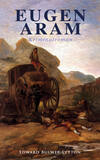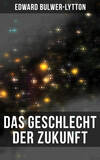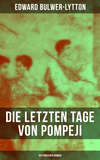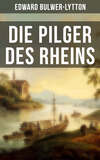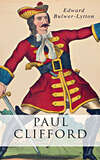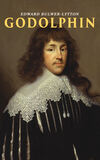Kitabı oku: «The Disowned — Complete», sayfa 21
CHAPTER XLIX
Virtue is like precious odours, most fragrant when they are incensed or crushed; for prosperity doth best discover vice, but adversity doth best discover virtue.—BACON.
It is somewhat remarkable that while Talbot was bequeathing to Clarence, as the most valuable of legacies, the doctrines of a philosophy he had acquired, perhaps too late to practise, Glendower was carrying those very doctrines, so far as his limited sphere would allow, into the rule and exercise of his life.
Since the death of the bookseller, which we have before recorded, Glendower had been left utterly without resource. The others to whom he applied were indisposed to avail themselves of an unknown ability. The trade of bookmaking was not then as it is now, and if it had been, it would not have suggested itself to the high-spirited and unworldly student. Some publishers offered, it is true, a reward tempting enough for an immoral tale; others spoke of the value of an attack upon the Americans; one suggested an ode to the minister, and another hinted that a pension might possibly be granted to one who would prove extortion not tyranny. But these insinuations fell upon a dull ear, and the tribe of Barabbas were astonished to find that an author could imagine interest and principle not synonymous.
Struggling with want, which hourly grew more imperious and urgent; wasting his life on studies which brought fever to his pulse and disappointment to his ambition; gnawed to the very soul by the mortifications which his poverty gave to his pride; and watching with tearless eyes, but a maddening brain, the slender form of his wife, now waxing weaker and fainter, as the canker of disease fastened upon the core of her young but blighted life,—there was yet a high, though, alas! not constant consolation within him, whenever, from the troubles of this dim spot his thoughts could escape, like birds released from their cage, and lose themselves in the lustre and freedom of their native heaven.
“If,” thought he, as he looked upon his secret and treasured work, “if the wind scatter or the rock receive these seeds, they were at least dispersed by a hand which asked no selfish return, and a heart which would have lavished the harvest of its labours upon those who know not the husbandman and trample his hopes into the dust.”
But by degrees this comfort of a noble and generous nature, these whispers of a vanity rather to be termed holy than excusable, began to grow unfrequent and low. The cravings of a more engrossing and heavy want than those of the mind came eagerly and rapidly upon him; the fair cheek of his infant became pinched and hollow; his wife conquered nature itself by love, and starved herself in silence, and set bread before him with a smile and bade him eat.
“But you,—you?” he would ask inquiringly, and then pause.
“I have dined, dearest: I want nothing; eat, love, eat.” But he ate not. The food robbed from her seemed to him more deadly than poison; and he would rise, and dash his hand to his brow, and go forth alone, with nature unsatisfied, to look upon this luxurious world and learn content.
It was after such a scene that, one day, he wandered forth into the streets, desperate and confused in mind, and fainting with hunger, and half insane with fiery and wrong thoughts, which dashed over his barren and gloomy soul, and desolated, but conquered not! It was evening: he stood (for he had strode on so rapidly, at first, that his strength was now exhausted, and he was forced to pause) leaning against the railed area of a house in a lone and unfrequented street. No passenger shared this dull and obscure thoroughfare. He stood, literally, in scene as in heart, solitary amidst the great city, and wherever he looked, lo, there were none!
“Two days,” said he, slowly and faintly, “two days, and bread has only once passed my lips; and that was snatched from her,—from those lips which I have fed with sweet and holy kisses, and whence my sole comfort in this weary life has been drawn. And she,—ay, she starves,—and my child too. They complain not; they murmur not: but they lift up their eyes to me and ask for—Merciful God! Thou didst make man in benevolence; Thou dost survey this world with a pitying and paternal eye: save, comfort, cherish them, and crush me if Thou wilt!”
At that moment a man darted suddenly from an obscure alley, and passed Glendower at full speed; presently came a cry, and a shout, and a rapid trampling of feet, and, in another moment, an eager and breathless crowd rushed upon the solitude of the street.
“Where is he?” cried a hundred voices to Glendower,—“where,—which road did the robber take?” But Glendower could not answer: his nerves were unstrung, and his dizzy brain swam and reeled; and the faces which peered upon him, and the voices which shrieked and yelled in his ear, were to him as the forms and sounds of a ghastly and phantasmal world. His head drooped upon his bosom; he clung to the area for support: the crowd passed on; they were in pursuit of guilt; they were thirsting after blood; they were going to fill the dungeon and feed the gibbet; what to them was the virtue they could have supported, or the famine they could have relieved? But they knew not his distress, nor the extent of his weakness, or some would have tarried and aided: for there is, after all, as much kindness as cruelty in our nature; perhaps they thought it was only some intoxicated and maudlin idler; or, perhaps, in the heat of their pursuit, they thought not at all.
So they rolled on, and their voices died away, and their steps were hushed, and Glendower, insensible and cold as the iron he clung to, was once more alone. Slowly he revived; he opened his dim and glazing eyes, and saw the evening star break from its chamber, and, though sullied by the thick and foggy air, scatter its holy smiles upon the polluted city.
He looked quietly on the still night, and its first watcher among the hosts of heaven, and felt something of balm sink into his soul; not, indeed, that vague and delicious calm which, in his boyhood of poesy and romance, he had drunk in, by green solitudes, from the mellow twilight: but a quiet, sad and sober, circling gradually over his mind, and bringing it back from its confused and disordered visions and darkness to the recollection and reality of his bitter life.
By degrees the scene he had so imperfectly witnessed, the fight of the robber and the eager pursuit of the mob, grew over him: a dark and guilty thought burst upon his mind.
“I am a man like that criminal,” said he, fiercely. “I have nerves, sinews, muscles, flesh; I feel hunger, thirst, pain, as acutely: why should I endure more than he can? Perhaps he had a wife, a child, and he saw them starving inch by inch, and he felt that he ought to be their protector; and so he sinned. And I—I—can I not sin too for mine? can I not dare what the wild beast, and the vulture, and the fierce hearts of my brethren dare for their mates and young? One gripe from this hand, one cry from this voice, and my board might be heaped with plenty, and my child fed, and she smile as she was wont to smile,—for one night at least.”
And as these thoughts broke upon him, Glendower rose, and with a step firm, even in weakness, he strode unconsciously onward.
A figure appeared; Glendower’s heart beat thick. He slouched his hat over his brows, and for one moment wrestled with his pride and his stern virtue: the virtue conquered, but not the pride; the virtue forbade him to be the robber; the pride submitted to be the suppliant. He sprang forward, extended his hands towards the stranger, and cried in a sharp voice, the agony of which rang through the long dull street with a sudden and echoless sound, “Charity! food!”
The stranger paused; one of the boldest of men in his own line, he was as timid as a woman in any other. Mistaking the meaning of the petitioner, and terrified by the vehemence of his gesture, he said, in a trembling tone, as he hastily pulled out his purse,—
“There, there! do not hurt me; take it; take all!” Glendower knew the voice, as a sound not unfamiliar to him; his pride returned in full force. “None,” thought he, “who know me, shall know my full degradation also.” And he turned away; but the stranger, mistaking this motion, extended his hand to him, saying, “Take this, my friend: you will have no need of violence!” and as he advanced nearer to his supposed assailant, he beheld, by the pale lamplight, and instantly recognized, his features.
“Ah!” cried he, in astonishment, but with internal rejoicing, “ah! is it you who are thus reduced?”
“You say right, Crauford,” said Glendower, sullenly, and drawing himself up to his full height, “it is I: but you are mistaken; I am a beggar, not a ruffian!”
“Good heavens!” answered Crauford; “how fortunate that we should meet! Providence watches over us unceasingly! I have long sought you in vain. But” (and here the wayward malignity, sometimes, though not always, the characteristic of Crauford’s nature, irresistibly broke out), “but that you, of all men, should suffer so,—you, proud, susceptible, virtuous beyond human virtue,—you, whose fibres are as acute as the naked eye,—that you should bear this and wince not!”
“You do my humanity wrong!” said Glendower, with a bitter and almost ghastly smile; “I do worse than wince!”
“Ay, is it so?” said Crauford; “have you awakened at last? Has your philosophy taken a more impassioned dye?”
“Mock me not!” cried Glendower; and his eye, usually soft in its deep thoughtfulness, glared wild and savage upon the hypocrite, who stood trembling, yet half sneering, at the storm he had raised; “my passions are even now beyond my mastery; loose them not upon you!”
“Nay,” said Crauford, gently, “I meant not to vex or wound you. I have sought you several times since the last night we met, but in vain; you had left your lodgings, and none knew whither. I would fain talk with you. I have a scheme to propose to you which will make you rich forever,—rich,—literally rich! not merely above poverty, but high in affluence!”
Glendower looked incredulously at the speaker, who continued,—
“The scheme has danger: that you can dare!”
Glendower was still silent; but his set and stern countenance was sufficient reply. “Some sacrifice of your pride,” continued Crauford: “that also you can bear?” and the tempter almost grinned with pleasure as he asked the question.
“He who is poor,” said Glendower, speaking at last, “has a right to pride. He who starves has it too; but he who sees those whom he loves famish, and cannot aid, has it not!”
“Come home with me, then,” said Crauford; “you seem faint and weak: nature craves food; come and partake of mine; we will then talk over this scheme, and arrange its completion.”
“I cannot,” answered Glendower, quietly. “And why?”
“Because they starve at home!”
“Heavens!” said Crauford, affected for a moment into sincerity; “it is indeed fortunate that business should have led me here: but meanwhile you will not refuse this trifle,—as a loan merely. By and by our scheme will make you so rich that I must be the borrower.”
Glendower did hesitate for a moment; he did swallow a bitter rising of the heart: but he thought of those at home and the struggle was over.
“I thank you,” said he; “I thank you for their sake: the time may come,”—and the proud gentleman stopped short, for his desolate fortunes rose before him and forbade all hope of the future.
“Yes!” cried Crauford, “the time may come when you will repay me this money a hundredfold. But where do you live? You are silent. Well, you will not inform me: I understand you. Meet me, then, here, on this very spot, three nights hence: you will not fail?”
“I will not,” said Glendower; and pressing Crauford’s hand with a generous and grateful warmth, which might have softened a heart less obdurate, he turned away.
Folding his arms, while a bitter yet joyous expression crossed his countenance, Crauford stood still, gazing upon the retreating form of the noble and unfortunate man whom he had marked for destruction.
“Now,” said he, “this virtue is a fine thing, a very fine thing to talk so loftily about. A little craving of the gastric juices, a little pinching of this vile body, as your philosophers and saints call our better part, and, lo! virtue oozes out like water through a leaky vessel,—and the vessel sinks! No, no; virtue is a weak game, and a poor game, and a losing game. Why, there is that man, the very pink of integrity and rectitude, he is now only wanting temptation to fall; and he will fall, in a fine phrase, too, I’ll be sworn! And then, having once fallen, there will be no medium: he will become utterly corrupt; while I, honest Dick Crauford, doing as other wise men do, cheat a trick or two, in playing with fortune, without being a whit the worse for it. Do I not subscribe to charities? am I not constant at church, ay, and meeting to boot? kind to my servants, obliging to my friends, loyal to my king? ‘Gad, if I were less loving to myself, I should have been far less useful to my country! And now, now let me see what has brought me to these filthy suburbs. Ah, Madame H——. Woman, incomparable woman! On, Richard Crauford, thou hast made a good night’s work of it hitherto!—business seasons pleasures!” and the villain upon system moved away.
Glendower hastened to his home; it was miserably changed, even from the humble abode in which we last saw him. The unfortunate pair had chosen their present residence from a melancholy refinement in luxury; they had chosen it because none else shared it with them, and their famine and pride and struggles and despair were without witness or pity.
With a heavy step Glendower entered the chamber where his wife sat. When at a distance he had heard a faint moan, but as he had approached it ceased; for she from whom it came knew his step, and hushed her grief and pain that they might not add to his own. The peevishness, the querulous and stinging irritations of want, came not to that affectionate and kindly heart; nor could all those biting and bitter evils of fate which turn the love that is born of luxury into rancour and gall scathe the beautiful and holy passion which had knit into one those two unearthly natures. They rather clung the closer to each other, as all things in heaven and earth spoke in tempest or in gloom around them, and coined their sorrows into endearment, and their looks into smiles, and strove each from the depth of despair to pluck hope and comfort for the other.
This, it is true, was more striking and constant in her than in Glendower; for in love, man, be he ever so generous, is always outdone. Yet even when in moments of extreme passion and conflict the strife broke from his breast into words, never once was his discontent vented upon her, nor his reproaches lavished on any but fortune or himself, nor his murmurs mingled with a single breath wounding to her tenderness or detracting from his love.
He threw open the door; the wretched light cast its sickly beams over, the squalid walls, foul with green damps, and the miserable yet clean bed, and the fireless hearth, and the empty board, and the pale cheek of the wife, as she rose and flung her arms round his neck, and murmured out her joy and welcome. “There,” said he, as he extricated himself from her, and flung the money upon the table, “there, love, pine no more, feed yourself and our daughter, and then let us sleep and be happy in our dreams.”
A writer, one of the most gifted of the present day, has told the narrator of this history that no interest of a high nature can be given to extreme poverty. I know not if this be true yet if I mistake not our human feelings, there is nothing so exalted, or so divine, as a great and brave spirit working out its end through every earthly obstacle and evil; watching through the utter darkness, and steadily defying the phantoms which crowd around it; wrestling with the mighty allurements, and rejecting the fearful voice of that WANT which is the deadliest and surest of human tempters; nursing through all calamity the love of species, and the warmer and closer affections of private ties; sacrificing no duty, resisting all sin; and amidst every horror and every humiliation, feeding the still and bright light of that genius which, like the lamp of the fabulist, though it may waste itself for years amidst the depths of solitude, and the silence of the tomb, shall live and burn immortal and undimmed, when all around it is rottenness and decay!
And yet I confess that it is a painful and bitter task to record the humiliations, the wearing, petty, stinging humiliations, of Poverty; to count the drops as they slowly fall, one by one, upon the fretted and indignant heart; to particularize, with the scrupulous and nice hand of indifference, the fractional and divided movements in the dial-plate of Misery; to behold the refinement of birth, the masculine pride of blood, the dignities of intellect, the wealth of knowledge, the delicacy, and graces of womanhood,—all that ennoble and soften the stony mass of commonplaces which is our life frittered into atoms, trampled into the dust and mire of the meanest thoroughfares of distress; life and soul, the energies and aims of man, ground into one prostrating want, cramped into one levelling sympathy with the dregs and refuse of his kind, blistered into a single galling and festering sore: this is, I own, a painful and a bitter task; but it hath its redemption,—a pride even in debasement, a pleasure even in woe,—and it is therefore that, while I have abridged, I have not shunned it. There are some whom the lightning of fortune blasts, only to render holy. Amidst all that humbles and scathes; amidst all that shatters from their life its verdure, smites to the dust the pomp and summit of their pride, and in the very heart of existence writeth a sudden and “strange defeature,”—they stand erect,—riven, not uprooted,—a monument less of pity than of awe! There are some who pass through the Lazar-House of Misery with a step more august than a Caesar’s in his hall. The very things which, seen alone, are despicable and vile, associated with them become almost venerable and divine; and one ray, however dim and feeble, of that intense holiness which, in the INFANT GOD, shed majesty over the manger and the straw, not denied to those who in the depth of affliction cherish His patient image, flings over the meanest localities of earth an emanation from the glory of Heaven!
CHAPTER L
Letters from divers hands, which will absolve
Ourselves from long narration.
—Tanner of Tyburn.
One morning about a fortnight after Talbot’s death, Clarence was sitting alone, thoughtful and melancholy, when the three following letters were put into his hand:
LETTER I. FROM THE DUKE OF HAVERFIELD
Let me, my dear Linden, be the first to congratulate you upon your accession of fortune: five thousand a year, Scarsdale, and 80,000 in the Funds, are very pretty foes to starvation! Ah, my dear fellow, if you had but shot that frosty Caucasus of humanity, that pillar of the state, made not to bend, that—but you know already whom I mean, and so I will spare you more of my lamentable metaphors: had you shot Lord Borodaile, your happiness would now be complete! Everybody talks of your luck. La Meronville tending on you with her white hands, the prettiest hands in the world: who would not be wounded even by Lord Borodaile, for such a nurse? And then Talbot’s—yet, I will not speak of that, for you are very unlike the present generation; and who knows but you may have some gratitude, some affection, some natural feeling in you? I had once; but that was before I went to France: those Parisians, with their fine sentiments, and witty philosophy, play the devil with one’s good old-fashioned feelings. So Lord Aspeden is to have an Italian ministry. By the by, shall you go with him, or will you not rather stay at home, and enjoy your new fortunes,—hunt, race, dine out, dance, vote in the House of Commons, and, in short, do all that an Englishman and a gentleman should do? Ornamento e splendor del secolo nostro. Write me a line whenever you have nothing better to do.
And believe me, Most truly yours, HAVERFIELD.
Will you sell your black mare, or will you buy my brown one? Utrum horum mavis accipe, the only piece of Latin I remember.
LETTER FROM LORD ASPEDEN
My Dear Linden,—Suffer me to enter most fully into your feeling. Death, my friend, is common to all: we must submit to its dispensations. I heard accidentally of the great fortune left you by Mr. Talbot (your father, I suppose I may venture to call him). Indeed, though there is a silly prejudice against illegitimacy, yet as our immortal bard says,—
“Wherefore base?
When thy dimensions are as well compact,
Thy mind as generous and thy shape as true
As honest madam’s issue!”
For my part, my dear Linden, I say, on your behalf, that it is very likely that you are a natural son, for such are always the luckiest and the best.
You have probably heard of the honour his Majesty has conferred on me, in appointing to my administration the city of ——. As the choice of a secretary has been left to me, I need not say how happy I shall be to keep my promise to you. Indeed, as I told Lord —— yesterday morning, I do not know anywhere a young man who has more talent, or who plays better on the flute.
Adieu, my dear young friend, and believe me, Very truly yours,ASPEDEN.
LETTER FROM MADAME DE LA MERONVILLE. (Translated.)
You have done me wrong,—great wrong. I loved you,—I waited on you, tended you, nursed you, gave all up for you; and you forsook me,—forsook me without a word. True, that you have been engaged in a melancholy duty, but, at least, you had time to write a line, to cast a thought, to one who had shown for you the love that I have done. But we will pass over all this: I will not reproach you; it is beneath me. The vicious upbraid: the virtuous forgive! I have for several days left your house. I should never have come to it, had you not been wounded, and, as I fondly imagined, for my sake. Return when you will, I shall no longer be there to persecute and torment you.
Pardon this letter. I have said too much for myself,—a hundred times too much to you; but I shall not sin again. This intrusion is my last. CECILE DE LA MERONVILLE.
These letters will probably suffice to clear up that part of Clarence’s history which had not hitherto been touched upon; they will show that Talbot’s will (after several legacies to his old servants, his nearest connections, and two charitable institutions, which he had founded, and for some years supported) had bequeathed the bulk of his property to Clarence. The words in which the bequest was made were kind, and somewhat remarkable. “To my relation and friend, commonly known by the name of Clarence Linden, to whom I am bound alike by blood and affection,” etc. These expressions, joined to the magnitude of the bequest, the apparently unaccountable attachment of the old man to his heir, and the mystery which wrapped the origin of the latter, all concurred to give rise to an opinion, easily received, and soon universally accredited, that Clarence was a natural son of the deceased; and so strong in England is the aristocratic aversion to an unknown lineage, that this belief, unflattering as it was, procured for Linden a much higher consideration, on the score of birth, than he might otherwise have enjoyed. Furthermore will the above correspondence testify the general eclat of Madame la Meronville’s attachment, and the construction naturally put upon it. Nor do we see much left for us to explain, with regard to the Frenchwoman herself, which cannot equally well be gleaned by any judicious and intelligent reader, from the epistle last honoured by his perusal. Clarence’s sense of gallantry did, indeed, smite him severely, for his negligence and ill requital to one who, whatever her faults or follies, had at least done nothing with which he had a right to reproach her. It must however, be considered in his defence that the fatal event which had so lately occurred, the relapse which Clarence had suffered in consequence, and the melancholy confusion and bustle in which the last week or ten days had been passed, were quite sufficient to banish her from his remembrance. Still she was a woman, and had loved, or seemed to love; and Clarence, as he wrote to her a long, kind, and almost brotherly letter, in return for her own, felt that, in giving pain to another, one often suffers almost as much for avoiding as for committing a sin.
We have said his letter was kind; it was also frank, and yet prudent. In it he said that he had long loved another, which love alone could have rendered him insensible to her attachment; that he, nevertheless, should always recall her memory with equal interest and admiration; and then, with a tact of flattery which the nature of the correspondence and the sex of the person addressed rendered excusable, he endeavoured, as far as he was able, to soothe and please the vanity which the candour of his avowal was calculated to wound.
When he had finished this letter he despatched another to Lord Aspeden, claiming a reprieve of some days before he answered the proposal of the diplomatist. After these epistolary efforts, he summoned his valet, and told him, apparently in a careless tone, to find out if Lady Westborough was still in town. Then throwing himself on the couch, he wrestled with the grief and melancholy which the death of a friend, and more than a father, might well cause in a mind less susceptible than his, and counted the dull hours crawl onward till his servant returned. Lady Westborough and all the family had been gone a week to their seat in ——.
“Well,” thought Clarence, “had he been alive, I could have intrusted my cause to a mediator; as it is, I will plead, or rather assert it, myself. Harrison,” said he aloud, “see that my black mare is ready by sunrise to-morrow: I shall leave town for some days.”
“Not in your present state of health, sir, surely?” said Harrison, with the license of one who had been a nurse.
“My health requires it: no more words, my good Harrison, see that I am obeyed.” And Harrison, shaking his head doubtfully, left the room.
“Rich, independent, free to aspire to the heights which in England are only accessible to those who join wealth to ambition, I have at least,” said Clarence, proudly, “no unworthy pretensions even to the hand of Lady Flora Ardenne. If she can love me for myself, if she can trust to my honour, rely on my love, feel proud in my pride, and aspiring in my ambition, then, indeed, this wealth will be welcome to me, and the disguised name which has cost me so many mortifications become grateful, since she will not disdain to share it.”





